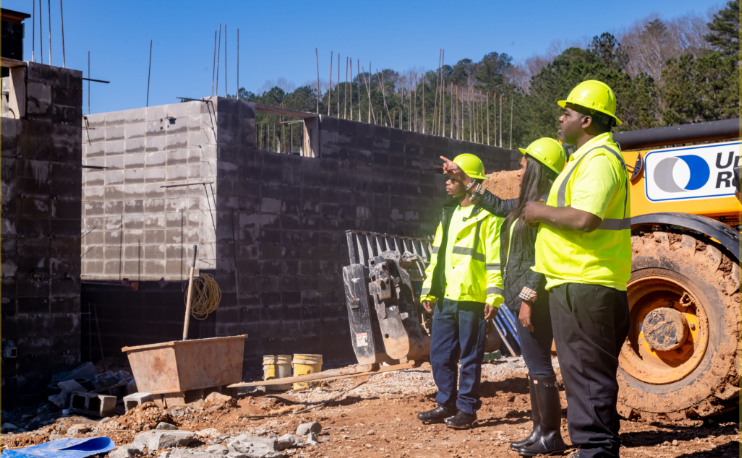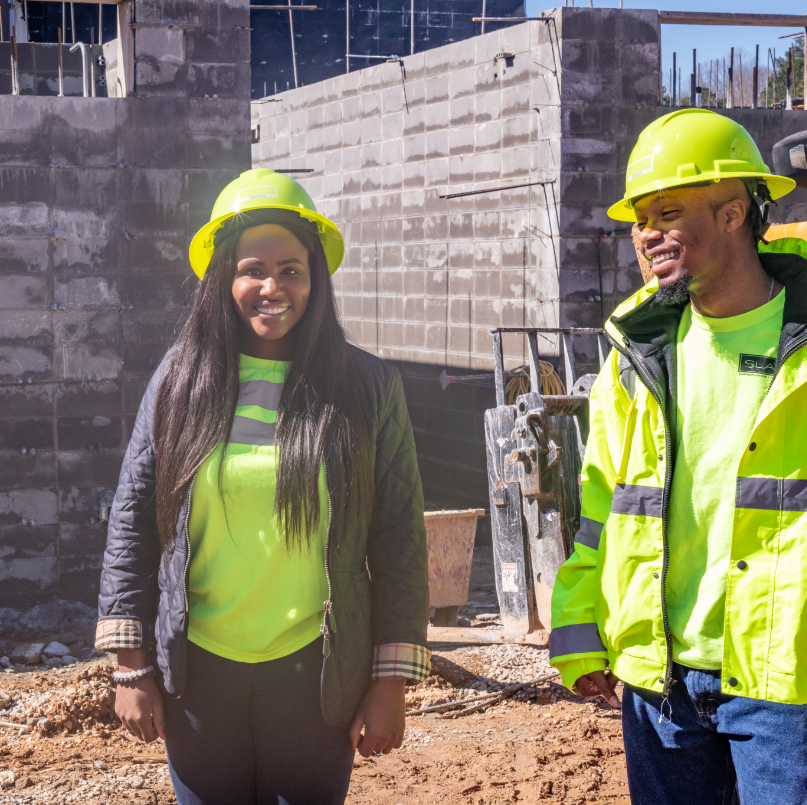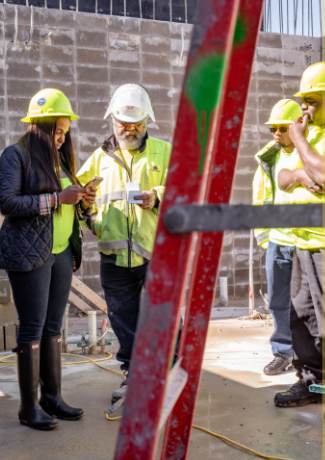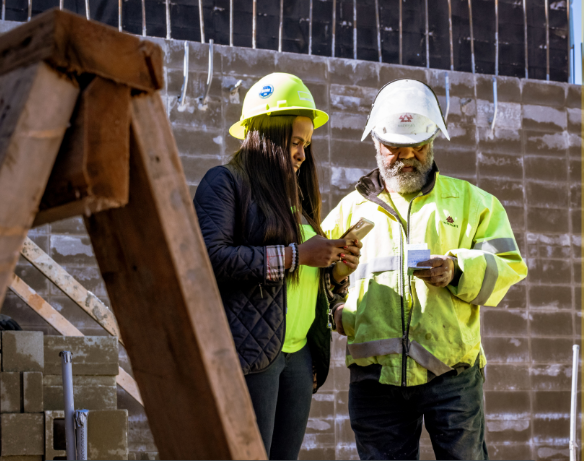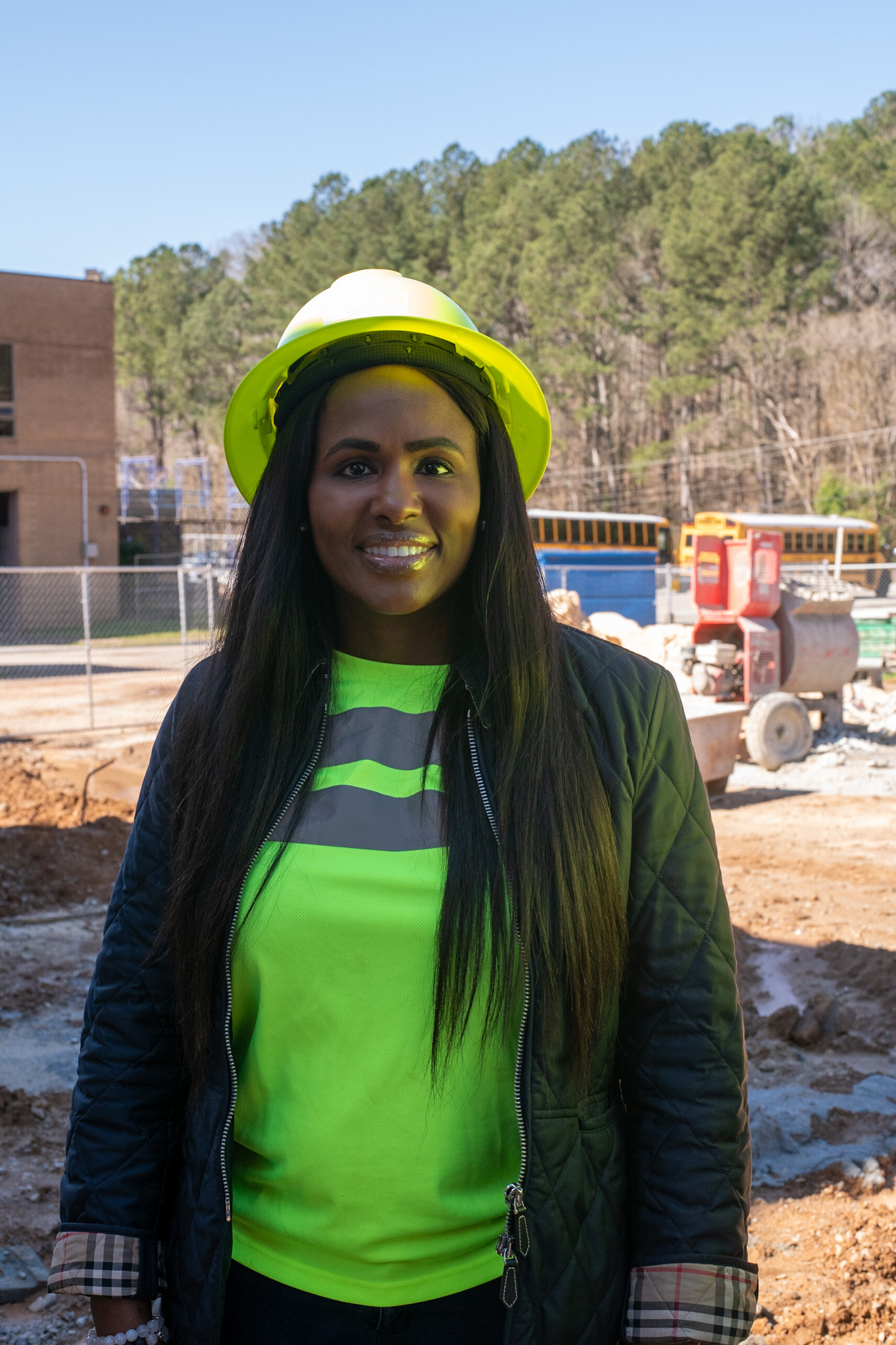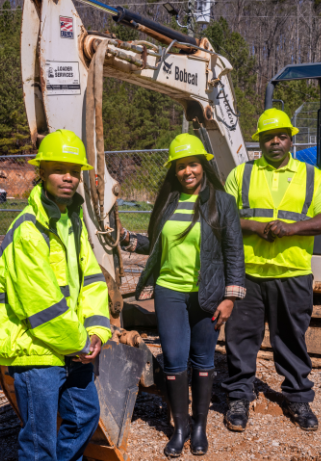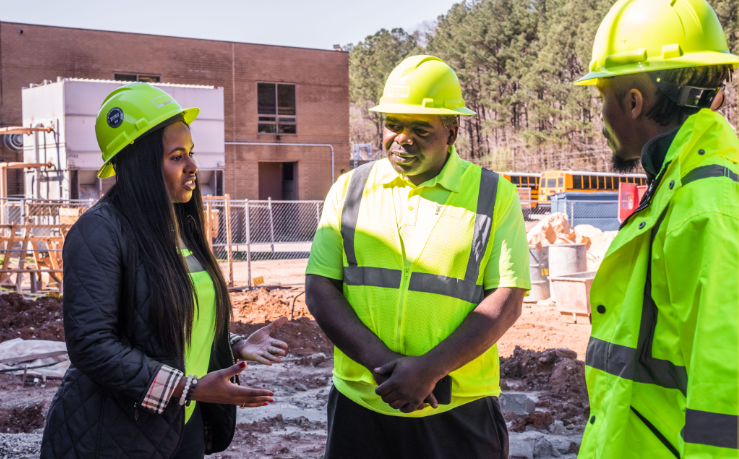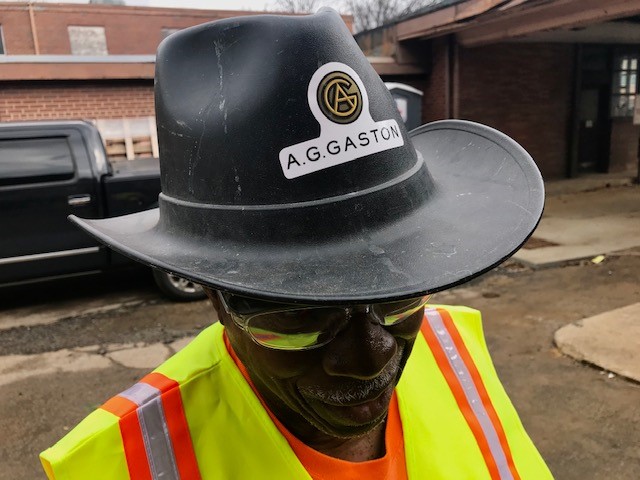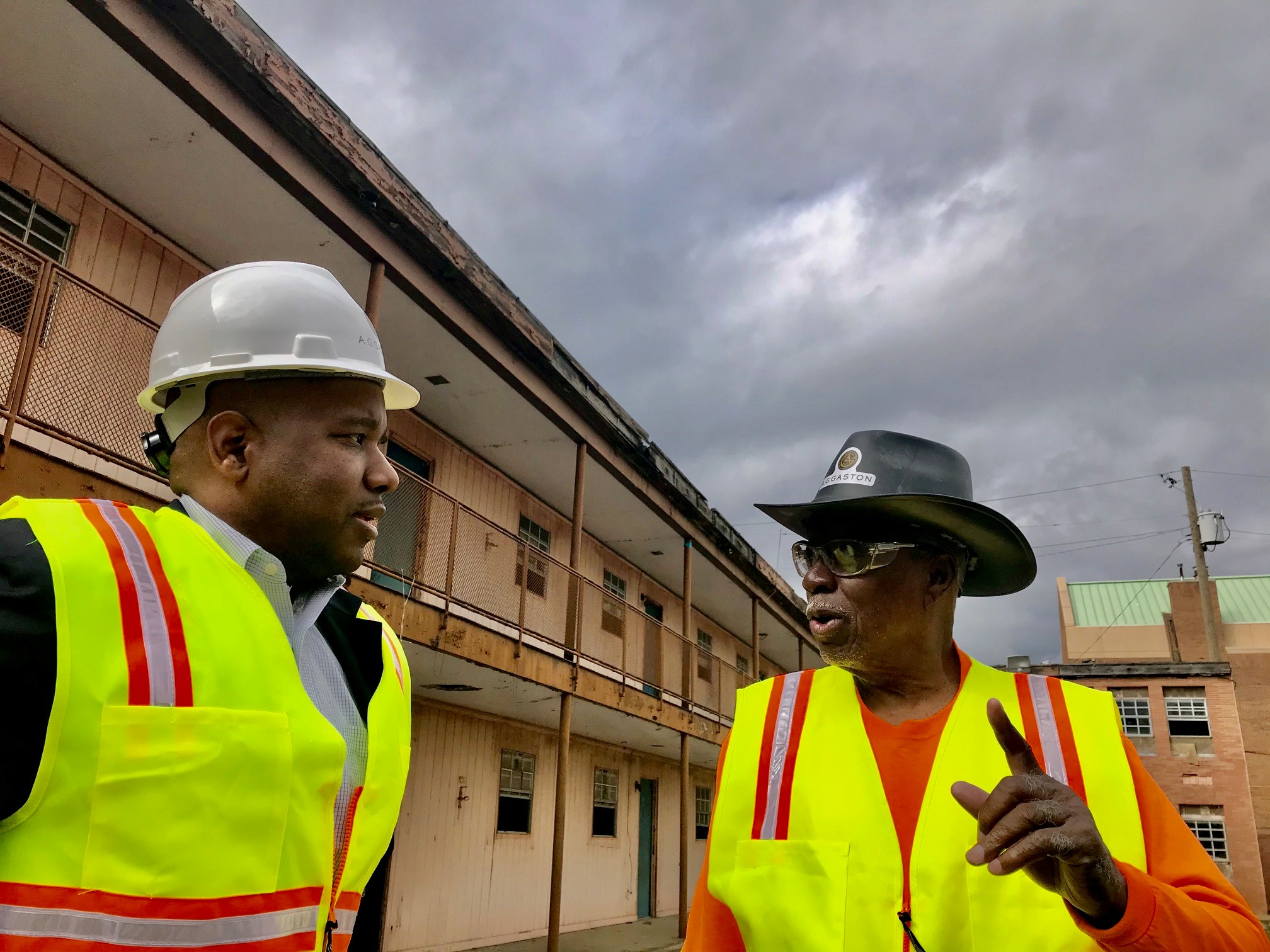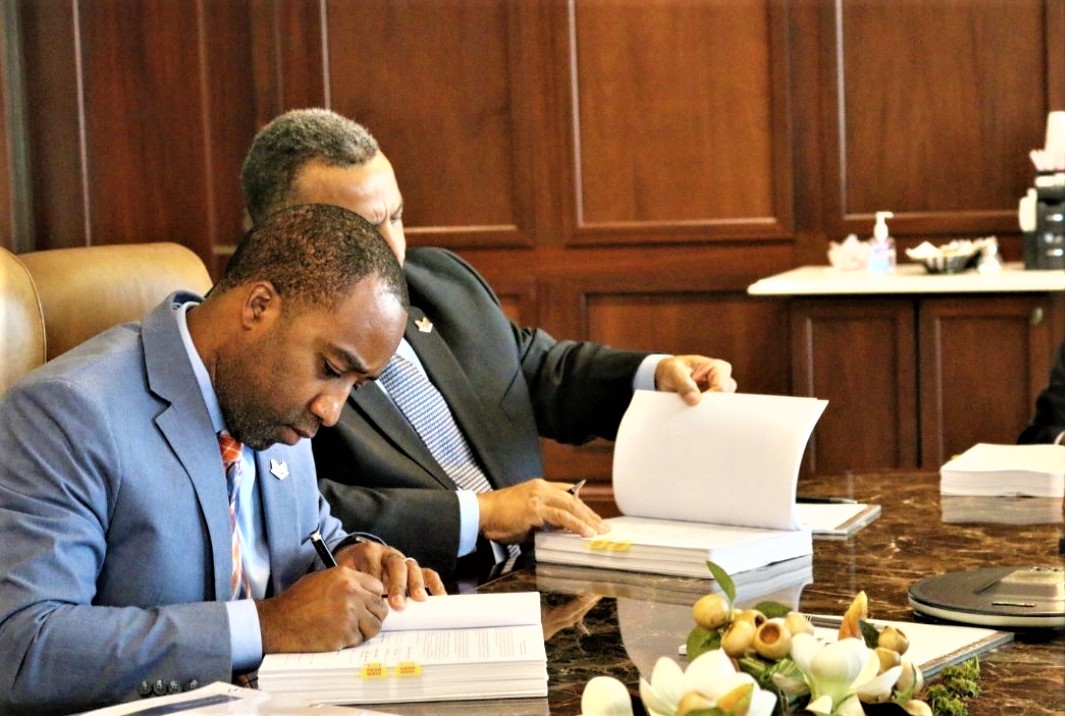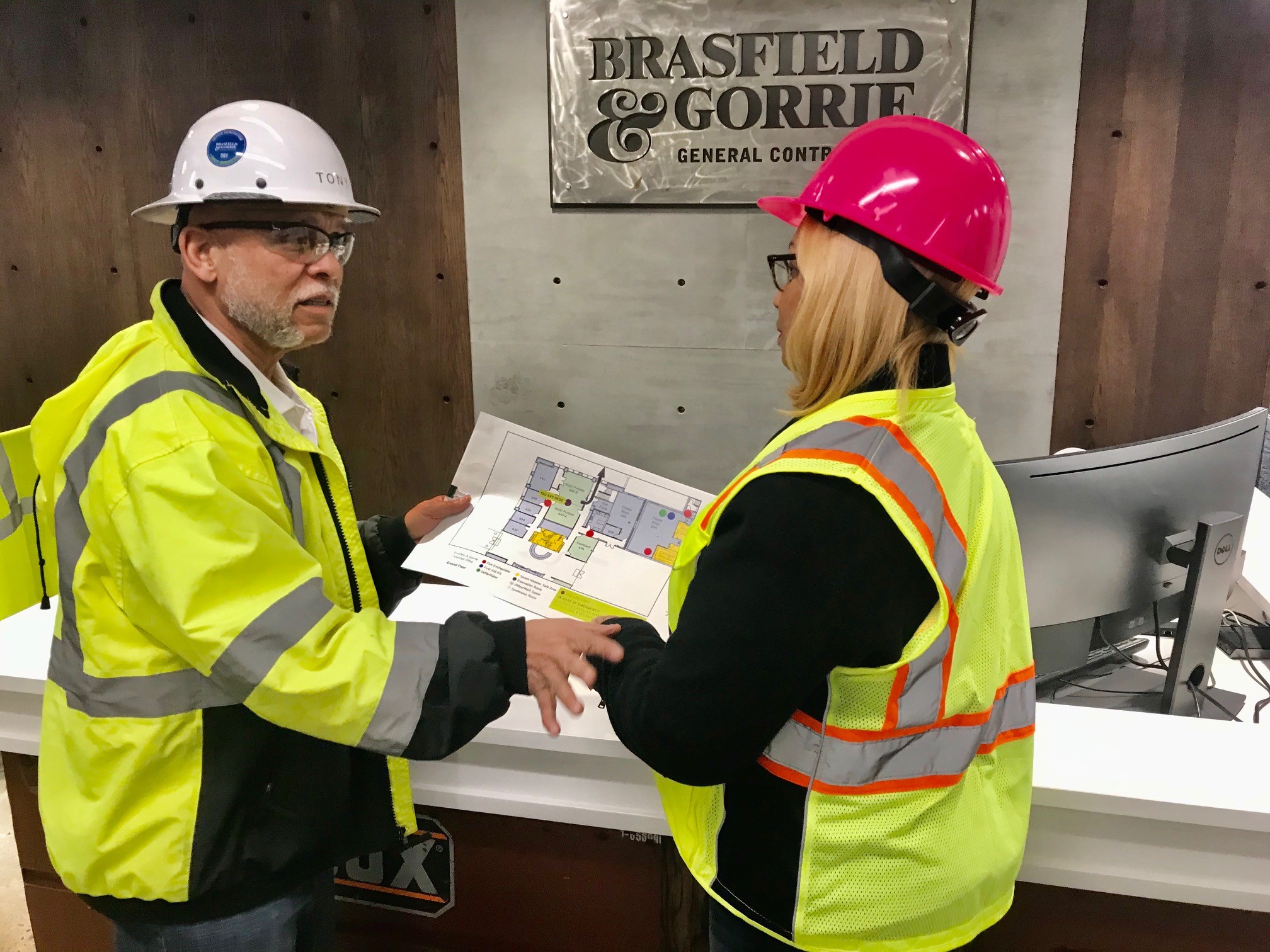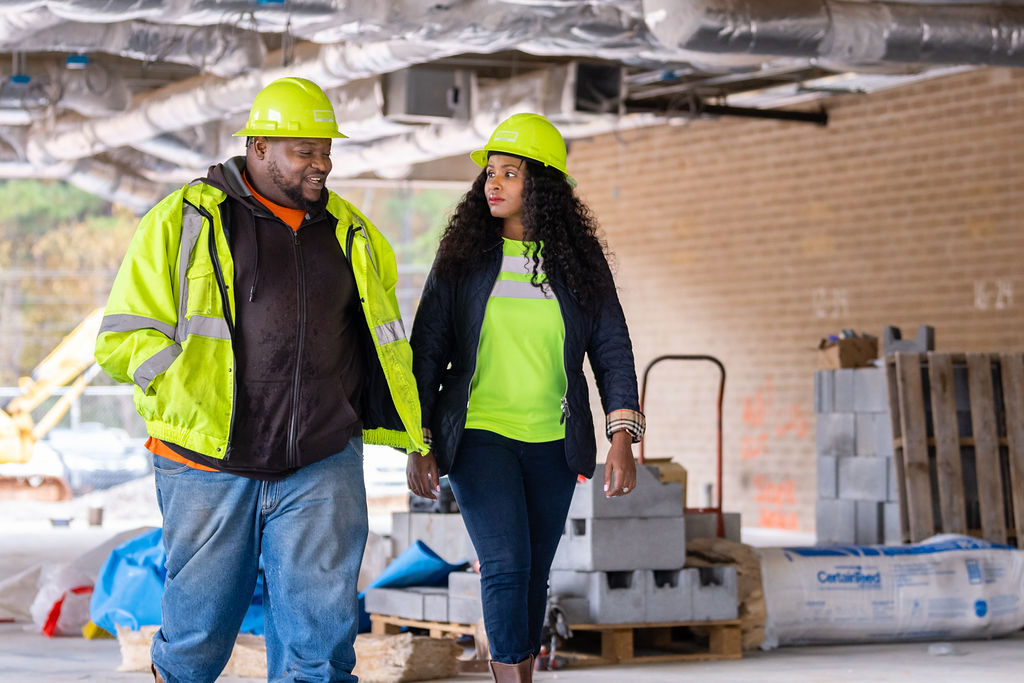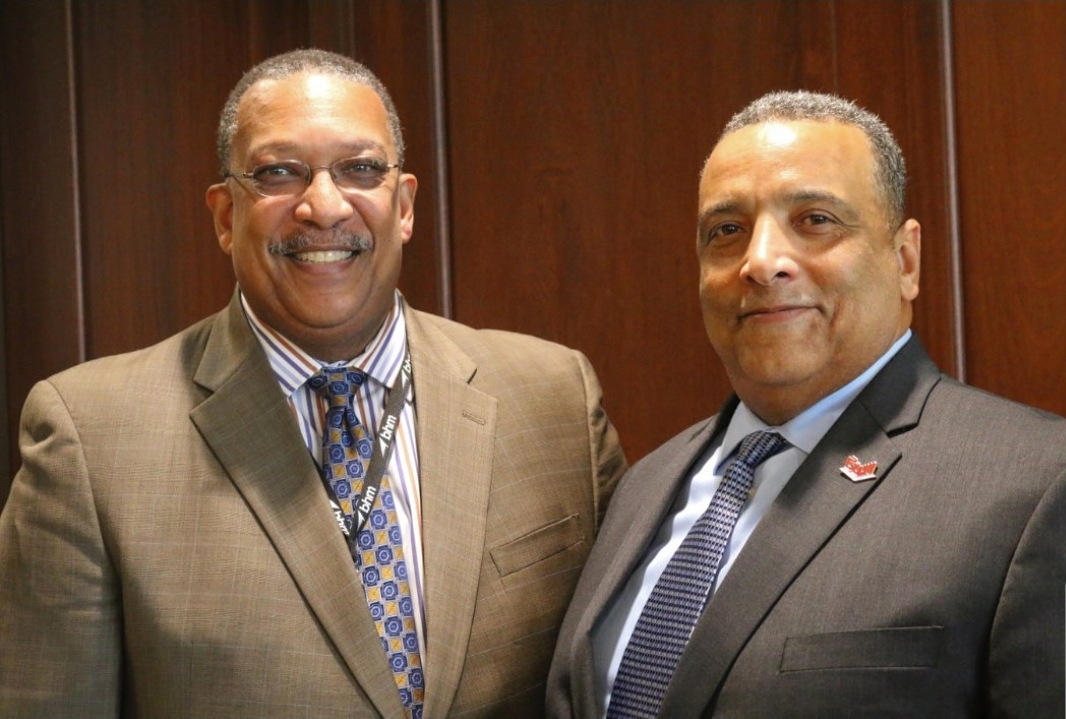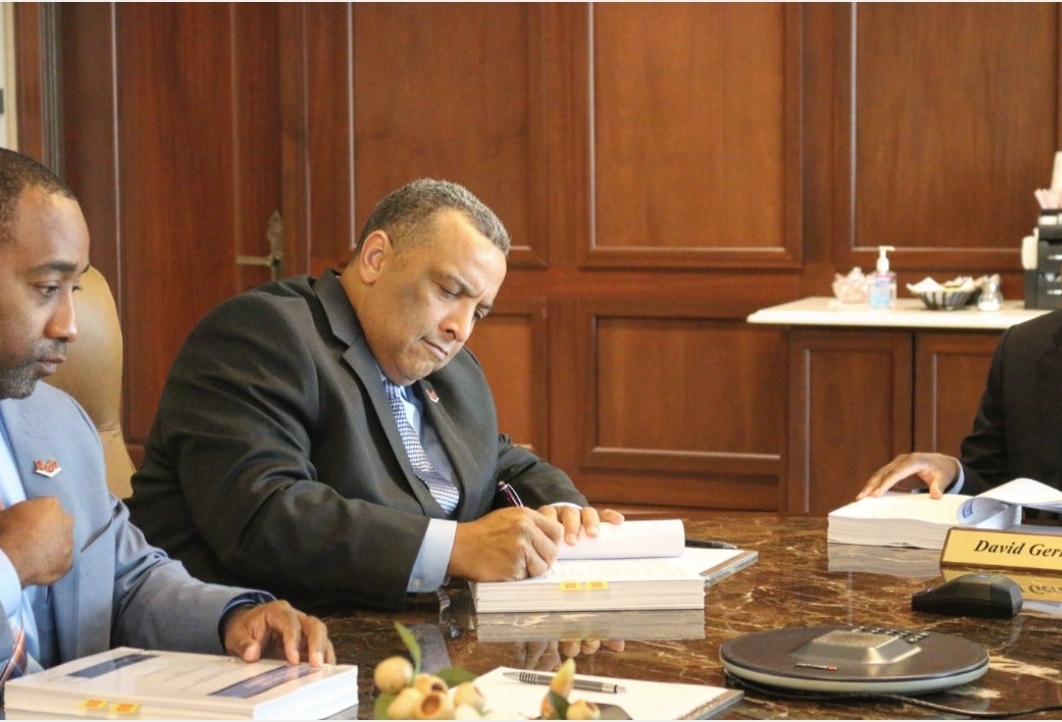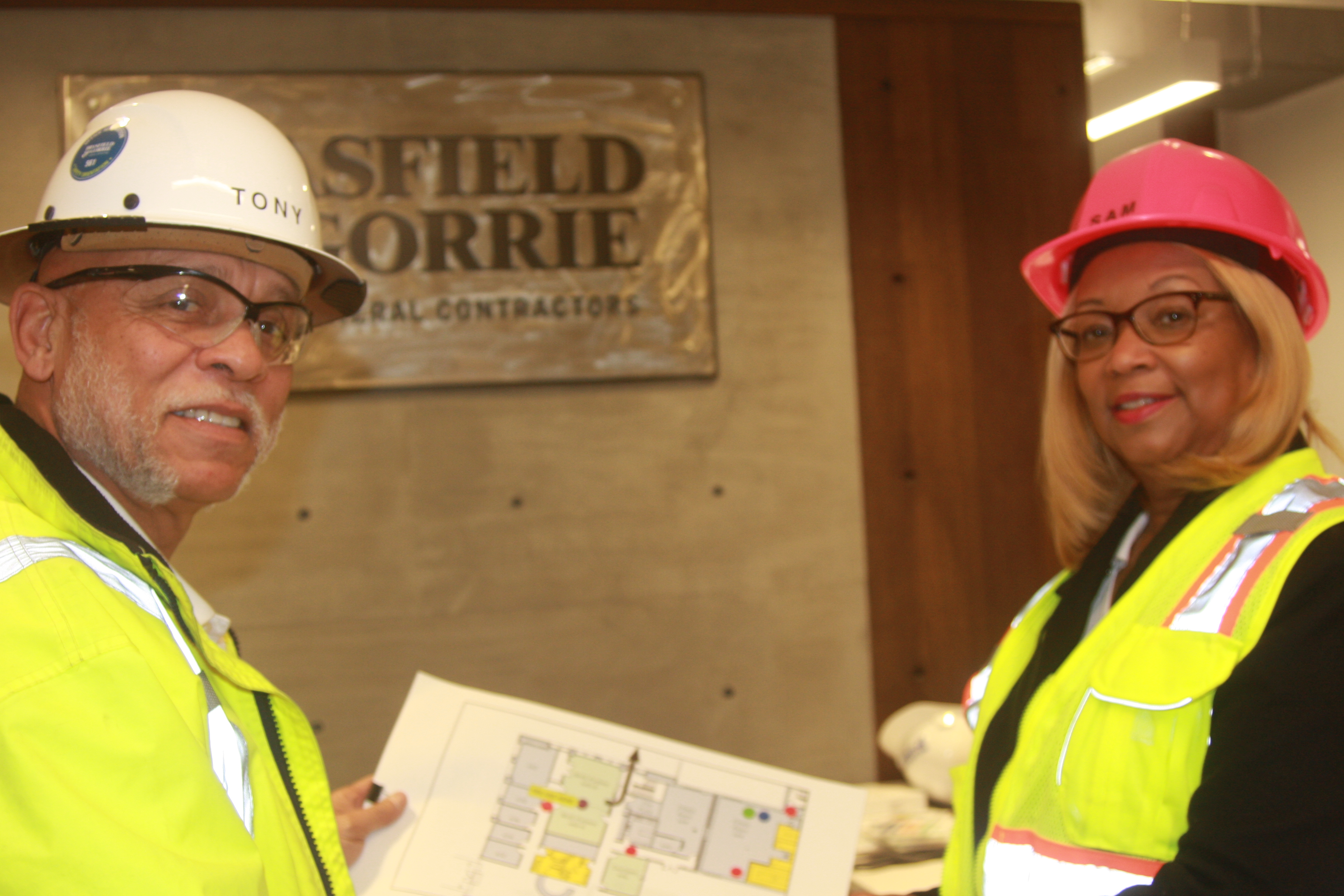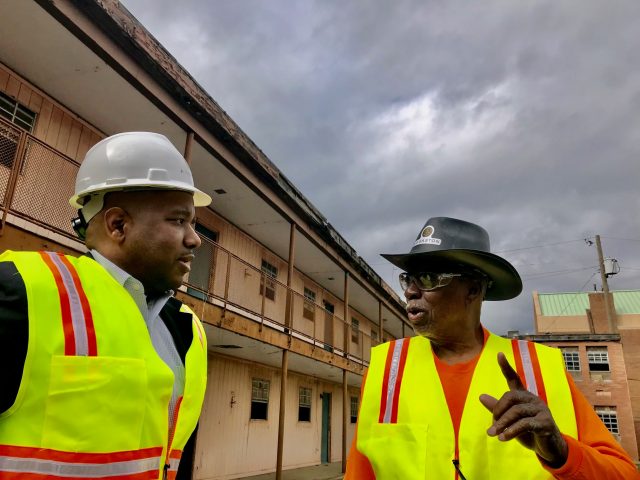
By Roy S. Johnson
AL.com/The Birmingham News
Rico Washington was sad. Oh, he was ecstatic, too. His company, Construction Works, won the bid to construct a new aircraft rescue firefighting station at the Birmingham-Shuttlesworth International Airport. The bid was the “lowest and best” offer — in the language of the public bidding world — among four companies vying for the $10.3 million project.
Washington’s celebration was tempered, though, when he learned it was largest ever such prime contractor bid awarded to an African American-owned firm on a Birmingham construction project.
“Really?” he asked. “That’s sad. Now, let’s fix it.”
Now, indeed.
Now, when Birmingham, Alabama’s largest city, is smack in the midst of an unprecedented construction boom.
Now, when more than $300 million in taxpayer funds will be spent to build a 42,000-seat stadium downtown and renovate outdated Legacy Arena.
Now, when private developers are on a giddy spending spree, too — sprinkling hundreds of millions on the city’s core over the next three years like pixie dust, renovating and restoring long-neglected downtown buildings and structures like Carraway Hospital ($327 million) and building new ones like the Red Mountain Theater Company arts campus ($25 million).
Now, when the Birmingham Airport Authority expects to spend $117 million on capital improvements and $5 million on concessions over the next four years. “There will be no end to the work we do for our customers,” airport CEO Ron Matthieu shared last fall at a one-day conference for minority and women entrepreneurs. “It will never stop.”
Now, just after ALDOT dropped $475 million to replace the massive I-59-20 downtown overpass.
Now, as the Housing Authority of Birmingham (HABD) prepares to spend $100 million in the next three years redeveloping five public housing communities.
Now, after the University of Alabama at Birmingham spent more than $100 million on construction last year and estimates spending another $100 million in the next two to three years.
Do that math: Easily, a cool billion could be spent on construction projects in Birmingham over the next three years, alone.
Yet, this is our shameful truth: Three decades after former mayor Richard Arrington launched the Birmingham Plan, a volunteer strategy to ensure minority-owned firms shared in the city’s construction surge, which included an estimated $800 million in commercial and public infrastructure spending between the late 1980s and early 1990s, few of Birmingham’s black- and women-owned construction firms are prospering.
Some are doing well, no doubt. But truly prospering — as in, capable of standing bid-to-bid with the city’s biggest construction companies?
Nah, not now.
BONDING CAPACITY
One measure of a construction company’s heft is its bonding capacity, the cost of a project that a bonding company is willing to insure. To have, say, a $175 million bonding capacity requires not only a lineage of successful large-scale projects but also $26 million to $35 million in the bank — security representing 15-to-20 percent.
It is challenging to build those reserves without overseeing numerous big projects that produce positive cash flow, and it is a challenge to land those projects without a sizable bonding capacity.
Welcome to the classic chicken-egg question.
Last month, Brasfield & Gorrie, the city’s largest construction company, won the bid to build Protective Stadium, which is projected to cost $179 million.
“No [minority-owned firm in Birmingham] can build a $50 million project,” says Michael Bell, executive director of the Birmingham Construction Industry Authority, an oft-criticized entity that was created in 1980 in response to legal actions taken against the Birmingham Plan. “It’s a sheer matter of cash flow. One could not even submit a responsive bid. They can build a building like anyone; most just don’t have the capacity to [bond more than] $5 to $7 million on a project.”
“In many ways, the whole system has failed the minority contractors,” says Tony Jones, founder of the Jones Group (The company generated $2.5 million in revenue in 2019, according to Jones.) “The decision-makers, who have largely been minorities themselves in this town, for some reason are not [committed] to help a minority company go from being a $100,000 revenue company to a $1.5 million company. The train’s off the track.”
“A lot of disadvantaged [firms] are starving,” says L’Tryce Slade, founder of Slade Land Use, Environmental and Transportation LLC, which possesses a $3 million bonding capacity. “I have projects in Nashville, Dallas, Atlanta, and Montgomery. I have projects in Birmingham but don’t feel the same respect here. Why?”
Some black contractors, simply and bluntly put, die from cash flow.
“We’re going to dump five hundred million into our city and if we have nothing to show for it, shame on us,” says Brian Hamilton, managing director of the A.G. Gaston Construction ($15 million aggregated bonding capacity). “It’s not anyone’s fault. It’s all of our fault.”
If not now, then when?
And why didn’t it happen before?
For a time, it did. Twice, in 1977 and 1989, the Birmingham City Council passed ordinances requiring minority firms get 10 percent participation in all public construction projects. Over time, minority firms reportedly gained almost a third of the contracts. But Arrington’s Plan was challenged in court, by the Alabama Associated General Contractors, and nullified by Crosson v Richmond, the 1989 U.S. Supreme Court ruling that declared the minority set-aside program for municipal contracts in Richmond, Va., unconstitutional.
The AAGC proposed the creation of the BCIA as an entity that would certify minority firms, provide industry oversight and foster continued growth. But it could seemingly do no right.
“We had some measure of success,” says Bell. “Some feel due to the voluntary nature, it isn’t strong enough; black contractors want [participation to be] mandatory. Non-blacks feel like they’re being forced into doing something. We don’t make a lot of friends.”
Efforts by minority- and women-owned companies to crack the Birmingham construction industry’s granite code are further stunted by Alabama’s stifling bid law. It requires any public expenditure of at least $15,000— a ridiculously minuscule amount — to be awarded to the “lowest responsible bidder” in a sealed-bid process that does not even have to be advertised. (Professional services are excluded.)
Now, here we are.
Has anything changed in 30 years? There are really two answers: Somewhat and we’ll see.
Perhaps due, in part, to a new generation of leaders in the construction field, the climate appears to have actually warmed — more conducive to building inclusive relationships between large, long-standing construction companies and growing minority- and women-owned firms.
Relationships built on trust, not court edicts.
On the belief that Birmingham’s rising tide should lift all boats. Finally.
“We have capable [minority-owned] firms here,” says Clinton Woods, owner of Prescott Contracting and the District 1 City Councilman. “There are a lot of good things happening, but we’ve got to get better. Our [city’s] role is to build capacity, awareness, and opportunity.”
PROTECTIVE STADIUM
Protective Stadium and the long-overdue renovation of Legacy Arena are a “unique” opportunity for public spending to break from its tainted history and boost the trajectory of black- and women-owned construction firms in the city, says BJCC Executive Director and CEO Tad Snider. “[They’re] not going to come around every 10 years,” he says. “So how do we refine and enhance the process and do what needs to be done to prepare businesses to grow?”
The BJCC strives for 30 percent inclusion by minority- and women-owned companies, Snider says, and is “clear” about the goal with bid-winning firms. “We try to find partners that share that commitment.”
For accountability, the BJCC engaged Selena Dickerson, founder/owner of Sarcor, LLC, a black (and female)-owned engineering firm, to track dollars spent on the projects with black-and women-owned firms. Each month, she creates a detailed — to the penny — report.
Prime contractors are required to submit the amount they spend with diverse subcontractors, and those figures are confirmed with the businesses.
Through December 2019: 28 percent of spending on stadium excavation was made with minority- and women-owned firms, including $481,714.75 spent with black-owned Championship Enterprises (asphalt milling, demolition, hauling, and erosion control). Spending for professional services (architecture, engineering and construction management) for the stadium totaled $2,778,214.25 with eight diverse firms, representing 21 percent of overall dollars spent.
For the Legacy Arena renovation (contracting bids open February 20), $3,898,981.17 was spent with 15 minority- or women-owned firms — 28 percent of the total.
Last month, Snider presented the update at a City Council Committee of the Whole meeting. Councilor Steven Hoyt has long been a vocal critic of the BJCC’s historic dearth of spending with minority- and women-owned firms. “Well,” he said to Snider, “you have shut me up.”
Snider says the BJCC is also being proactive in “preparing a business to grow.” It’s hosted two seminars for diverse businesses to highlight upcoming projects (the BJCC’s annual operating budget is $25 million) and emphasize the need to be MBE (minority business enterprise) or DBE (disadvantaged business enterprise) certified and tighten financial statements in order to establish and increase bonding capacity.
CITY HALL AND FRUSTRATION
Outside of City Hall, particularly among minority-owned firms, there is frustration with Birmingham’s level of spending of taxpayer dollars with black- and women-owned enterprises. (The city’s five-year Capital Improvement Budget totals more than $350 million for FY19 through FY23.
“I don’t depend on the city for anything,” says Jones. “I don’t even bid on their jobs. We go a whole other route. We go to the private sector and work with those who will work with us. I don’t care what color they are.”
Inside City Hall, there is frustration, too, with the state bid law constraints.
“There is a spirit and desire to do more, but we can’t ignore [it],” says Tene Dolphin, deputy director of diversity and inclusion in the mayor’s office. “We can’t give preference points or have the appearance of awarding one contract over another based on race or gender.”
The city is conducting a year-long, in-depth quantitative and qualitative analysis of its spending with MBEs and DBEs (knowing the results may not be pretty). In the meantime, city officials will construct a multi-faceted inclusive procurement program that will provide internal training on the importance of inclusive procurement and external training for companies (including, but also beyond the construction industry) on how best to do business with the city. The hope is that the program helps increase city spending with MBEs and DBEs and becomes a blueprint for corporations looking to evolve their own inclusive spending habits.
“We just have to focus,” says Dolphin, who once served as senior deputy director of Washington D.C.’s Department of Small and Local Business and worked in the U.S. Department of Commerce. “We have to challenge [general contractors] and we want to. We also need all of our service providers to take further steps in growing companies and building capacities – from the back office to bookkeeping, to funding and bonding to knowing how to bid on projects.”
UAB
This year, UAB will begin construction on the science and engineering complex, athletic support building for baseball and softball and renovation of the Boshell Diabetes Building. The university must abide by the state bid law but, through its Small Business Inclusion effort, strives to “partner with diverse business enterprises to train and prepare the businesses in our community, ultimately supporting the community involvement and economic development pillars of UAB’s strategic plan,” according to a University of Alabama at Birmingham spokesperson. “Our bids stay within state laws, while representing UAB’s culture and shared values.”
Last year, the UAB spent more than $15 million with MBEs, according to Greg Parsons, associate vice president and chief facilities officer.
Housing Authority of the Birmingham District (HABD) and the Birmingham Airport Authority have bid standards to assure high-quality standards are met, but since they’re largely funded with federal, not with state or local dollars, they’re not handcuffed by the restrictive state law. Thus, the agencies can be more intentional about engaging women- and minority-owned firms.
HABD
Last fall, the HABD approved an agreement with Southside Development Company, a consortium of six firms to oversee the $26 million development of the Southtown public housing community. The consortium includes construction heavyweights Corporate Realty and B&S, as well as two black-owned firms, A.G. Gaston Construction and The Benoit Group, based in Atlanta.
“I am committed to ensuring that minority- and women-owned businesses are operating on a level playing field,” says Cardell Davis, who chairs the HABD board of commissioners. “Our task is to create policies that allow for equal opportunities and to make sure that those policies are being implemented.”
HOW CONSTRUCTION WORKS
Construction Works, which has begun construction on the airport fire station, has a bonding capacity of $20 million for a single project, $50 million in aggregate, according to Washington. The company is based in Georgia, although it is opening a Birmingham office. Company founder, Cedric Walker, is a native of Tuscaloosa; Washington grew up in Titusville.
The company has a strong portfolio of projects, including several airport projects. The company constructed a $20 million equipment facility for Delta Airlines at Atlanta’s Hartsfield International Airport under Dunn Works, its unique joint venture with J.E. Dunn Construction, a 90-year-old company with $3.6 billion in revenue and 20 offices nationwide.
“We didn’t form with them out of convenience,” says Washington. “We united with them because we brought something to the table. We have similar ideologies and cultures and said, ‘Let’s just see how it works.’ We know how to be agile and quick. Big businesses can’t do that.
“We didn’t need them; they didn’t need us. That is the perfect time to have a relationship.”
“Construction Works is fantastic,” says Gaston’s Hamilton. “We need [VP] Rico [Washington] to be successful. There is enough work to go around, but we don’t get do-overs. Whether fair or not, my next opportunity is tied to his success.”
There is still lingering antipathy with the private sector due in some circles to its legacy of obstinacy towards black- and women-owned businesses. Though it’s seemingly fading with more large firms appearing to be using DBEs for significant subcontracting roles.
BRASFIELD & GORRIE
B&G has gone even further. Last September, with the blessing of CEO Jim Gorrie, son of founder Miller Gorrie, the company launched EQUIP to “deliver education and networking opportunities” to minority- and women-owned enterprises, as well as “a forum to engage in industry best practices.”
It held workshops in Atlanta and Birmingham for minority- and women-owned companies (25 in Atlanta, 15 in Birmingham) seeking to do business as subcontractors. Another was scheduled for Birmingham on February 5.
For Jones Group, LLC, EQUIP has been much more.
The company was founded in 2010 when Tony Jones resigned from his 9-to-5er at Union Carbide, and his brother, Ronald, quit his job with the Federal Bureau of Investigation.
“We always intended to go into business for ourselves,” says Tony Jones. “Our work experience gave us some know-how to go along with our desire.”
The brothers (along with Ronald’s wife, Roxie, who quit her job with the U.S. Department of Commerce to join them) launched as a staffing company in Mobile doing cleanup for the deadly oil spill in the Gulf of Mexico that year. They later moved to Birmingham and handled clean up after the deadly tornadoes that hit the city in 2011.
With a desire to move into contracting, they installed flooring for Lowe’s (“They did not have any black-owned companies installing floors,” says Tony Jones) then created three divisions: flooring/sheetrock, framing, and ceilings.
They began remodeling homes and churches then, in late 2017, received a call from B&G to see if it was interested in quoting a job for them. “Of course, we said yes,” Tony said.
J.G. didn’t get the job but later bid on another project for the company and won it: remodeling B&G’s headquarters. After working with the company on other projects, and expansion into utility work, B&G asked JG if they wanted to be mentored through EQUIP.
Jones said yes, of course.
JG’s leaders meet monthly with a B&G project manager, and often with Gorrie and other B&G executives. Safety, an area directed for JG by Samuetta H. Drew, senior executive director of Security Operations, is a key area of focus.
The company is now acting as a general contractor in the area of utilities—under Jones Group Utilities—and is striving to be general contractors in construction.
“I can’t tell you how helpful [EQUIP has] been with us,” Tony Jones says. “I learned a lot, our people learned a lot — in every facet.
“We work hand in hand with their supervisor and project manager for a job. We start with manpower—what’s needed? They assisted us in talking about how to bid jobs and do pre-construction work. They give assistance with the scheduling of jobs and how you piece in with all the other subs on the job. That’s critical, especially if you one day plan to be a general contractor. Sounds like a simple thing but when you have 10 subs on a job, it’s a moving puzzle; it’s fluid, it moves.
“We’re on the job, not just sitting down and getting the academic side. We’re working and being awarded jobs. I think we’re a better company because of it.”
“We try to survive on our performance,” Tony Jones adds. “Independent of race, creed or color, we want to perform. We want you to think of the Jones Group as a good company. Sure, we’re a minority-owned company but we want the first thing you think to be that they are a good company.”
DON’T LOSE MOMENTUM
Washington and others firmly believe the key to capitalizing on this time of unprecedented growth, beyond continued education on business operations, is a further collaboration among minority- and women-owned firms—combining resources, for instance, to bid for bigger projects.
“Being selfless and open to collaboration,” he says. “I can compete against you and still share stuff with you. I know my limitations; I can’t do every job. Together, though, we can do more. We have to show them.”
“Collaboration and finding the right relationships are the keys to changing the mindset of how we do business as minority firms in Birmingham,” says Dickerson. “But we have to be intentional about it. Working together we can get a larger piece of the pie because we’ll have more [bonding] capacity.
“It is a good time to be in business in Birmingham,” Hamilton says. “I can feel the collective momentum. At the same time, we’ve got to have somebody creating awareness, ringing bells and making us all accountable for the economic reliance of black business. These are our folks.”
If not now, when? Or ever? We’ll see.
This story originally appeared on al.com and can be found here https://www.al.com/news/2020/02/amid-birminghams-1-billion-construction-boom-will-minority-and-women-owned-firms-finally-prosper.html.



